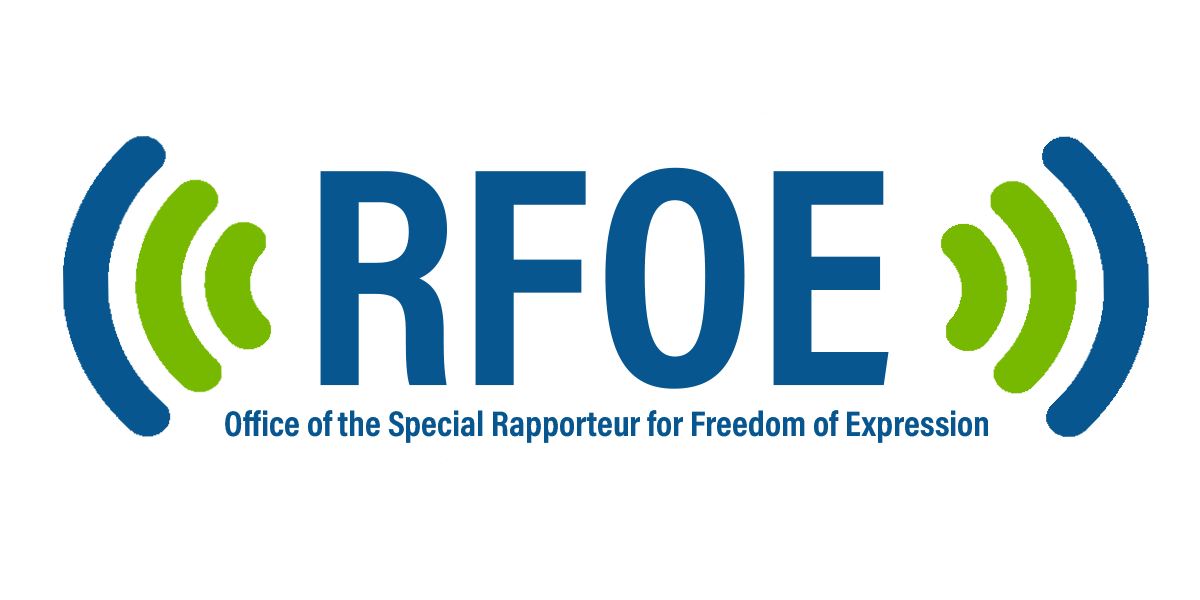
Press Release



IACHR, its SRFOE, and UN Human Rights, call on the States of the region to protect women in the framework of protests and their participation in feminist movements
July 22, 2021
Related links
Contact info
IACHR Press Office
Distribution List
Bogota / Guatemala City/ Mexico City/ Panama City/ Santiago / Tegucigalpa / La Paz / Washington, D.C., (July 22, 2021) – Within the framework of the Joint Action Mechanism to contribute to the protection of human rights defenders in America, the Inter-American Commission on Human Rights (IACHR), its Special Rapporteur for Freedom of Expression (SRFOE) and the presences in Latin America of the Office of the United Nations High Commissioner for Human Rights (UN Human Rights), call on the States of the region to protect women in the context of peaceful protests as well as their participation in feminist movements, essential elements for the full force of democracy and for the rule of law.
In several countries of the region, the IACHR, its SRFOE and UN Human Rights have observed an increase of social protests led by, or in which groups of women, young people and girls have participated. These protests include demonstrations demanding gender equality, the fight against discrimination as well as the eradication of the different forms of violence against women. However, they warn with concern that, in the exercise of the right to peaceful assembly, they are frequently violently repressed by members of the security forces, as well as by private actors.
According to the information received, within the framework of protests led by women or involving feminist movements in the region, numerous incidents have been registered. They range from excessive use of force, criminalization, stigmatization, intimidation, threats, arrests, arbitrary, abusive use of criminal law, to gender violence and sexual violence, as well as attacks against the life and integrity of women human rights defenders.
In the current context of the health emergency due to COVID-19, restrictions on freedom of movement and peaceful assembly pose additional difficulties compared to traditional forms of organization and collective action. On occasions, they have shifted advocacy and advocacy activities to online platforms or other support networks. In this context, the IACHR, its SRFOE, and UN Human Rights observe with concern an increase in the use of information technologies to discredit women defenders and their work, as well as to incite abuse of their rights.
The IACHR, its SRFOE and UN Human Rights urge the States of the region to guarantee that any restriction to freedom of expression and to the right to peaceful assembly, including in the context of the pandemic, is complying with international and regional human rights standards and norms.
Women human rights defenders play a fundamental role in the democratic development of society, in access to justice, in the strengthening of the rule of law, as well as in the effectiveness and advancement of human rights and the protection of the environment. For this reason, they urge States to fulfill their duty to create and protect, in law and in practice, an environment conducive to the enjoyment of these rights with a differentiated approach related to the protection of women, girls and adolescents that allows them to participate actively and meaningfully and under conditions of equality in the promotion and protection of human rights.
Additionally, both organizations have important concerns for the safety of women in situations of special vulnerability who organize and mobilize in rural contexts, as well as indigenous women, women of African descent, with disabilities, refugees and migrants, women that defend the rights of the LGBTI + population, gender equality, sexual and reproductive rights or the environment.
It is important to highlight the differentiated and disproportionate impact that attacks, stigmatization campaigns, restrictions and repressive practices have on women, girls and adolescents, since many of the acts of violence carried out against them damage and violate their gender status. These acts generate a context of fear and a dissuasive effect in activities in defense of human rights or in political affairs, which contributes to perpetrating patterns of exclusion.
Finally, the IACHR, its Special Rapporteur, and UN Human Rights call on States to guarantee the right to protest for women defenders. In turn, they should adopt specialized measures to eradicate structural patterns of discrimination based on gender. The States must ensure that, in the investigations of acts of violence against women defenders, judicial authorities strengthen due diligence, as well as the incorporation of a differentiated gender approach throughout the investigation, prosecution, punishment and reparation for crimes against women defenders.
No. 187/21
10:00 AM

